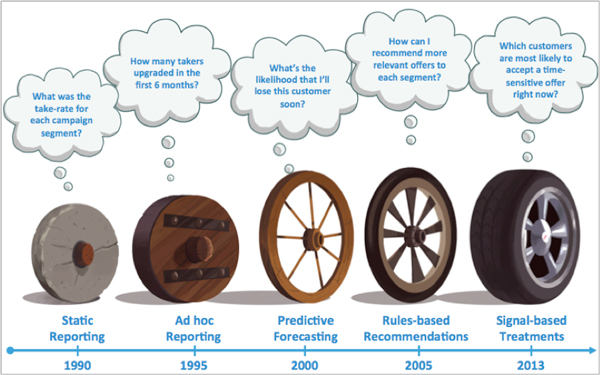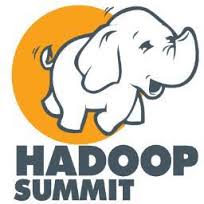When to nudge a delinquent customer for a payment — that is the question. Or rather, that is one of many — many — questions that Signals are helping telecom companies (telcos) answer. Because when to call and ask for payment can actually help determine whether to call at all, and eliminating calls can lead to significant savings. So how do Signals do this? And more important, how can telcos, specifically, take advantage of these Signals to improve customer experience and maximize bottom-line impact?
How Telcos Are Using Signals to Drive Savings and Revenues
Topics: Analytics, Signals, Marketing, Supply Chain & Operations
How Data Science Helps Ease the Pain of Flight Cancelations
We’ve all been there. That place in the airport where you’ve just learned your flight has been canceled. If the weather’s bad, you can understand and roll with it. But if it seems arbitrary and royally screws up your plans — well, that’s another story. As a customer, you wonder, “Why do airlines do this? And how do they decide that my flight is canceled when others are not?” But airlines are asking their own questions, namely: “We have to cancel X number of flights, but which flights should we cancel to minimize the loss of revenue and customer loyalty?” Here, we delve into both sides of the issue, and the answers should provide a little context — and hopefully quell the frustration for everyone.
Topics: Data Science, Signal Hub Technologies, Marketing
It was 7:00 a.m. on a Saturday morning, and the 10th floor of Los Angeles City Hall was filled with more than 450 people gathered to spend their day off of work with their noses buried in their laptops. They were data scientists, and they had come to innovate new technologies to solve complex social problems using the city’s newly open data.
Topics: Big Data, Data Science
Marketing automation's time has finally come, but it's been a long, tortuous road.
I’m a big fan of marketing automation. My experience goes back a few years. I was just getting settled at a new company when our CFO received a renewal invoice from a marketing automation vendor. She didn’t know how we were using the software, and neither did I.
Topics: Big Data, Machine Learning, Marketing
The 5 Best Data Science Tools from the 2014 Hadoop Summit
The Hadoop Summit conference, hosted by Hortonworks and Yahoo, has become a must-see Big Data event. The Hadoop distributed computing architecture is now an integral part of what it means to be a data scientist, and a few days of concentrated effort each year is enough to get a vision for where the industry is headed. The Hadoop Summit serves this purpose well by providing thought-provoking technical sessions, keynote addresses, and a vendor exhibition that brings many of the major players in the Hadoop ecosystem together under one roof.
Topics: Data Science, Machine Learning, Events
Data Science As the Panacea for Healthcare Fraud, Waste, and Abuse
Edited by Yan Zhang
Many pundits speaking about the state of the nation’s healthcare infrastructure routinely point to fraud, waste, and abuse (FWA) as major reasons for many of the problems the public witnesses every day – increased healthcare costs and the resulting increase in insurance premiums. The net effect is an annual loss of billions of dollars, and these losses affect the public in very real ways.
The size of the healthcare sector, the enormous amount of money involved, and the lack of surveillance and monitoring mechanisms across the healthcare ecosystem make it an attractive target for FWA. According to the Office of Management and Budget, in 2010, about 9%, or $47.9 billion was lost to fraud in Medicare alone. It is therefore imperative to develop effective FWA technologies and solutions for reducing the costs associated with our healthcare system.
Data science and its primary enabling methodology of machine learning represent the country’s best chance for detecting FWA to avoid extraordinary sources of loss. Data science possesses the facilities to make a significant difference healthcare industry budgets and their impact to the public. Opera Solutions is the industry leader in applying Big Data technologies to the most challenging and significant business problems. We are the company charged with developing the analytics to identify fraud for the Centers for Medicare & Medicaid Services (CMS) on the health insurance exchanges. Here’s a look into just how big this challenge is — and some of the approaches we’re taking to overcome one of the costliest burdens in America.
Topics: Healthcare, Big Data, Data Science, Machine Learning
Data Science: Recommender Engines with Collaborative Filtering
Ever wonder how services like Netflix or Pandora choose media to suggest to you? If you’ve been reading this blog for a while, you’re familiar — at least a little bit — with recommender engines. In our post “How Machine Learning Will Affect Your Next Vacation,” we talked about the impact machine-learning recommender engines have on regular consumers. But here, we want to dive deeper and talk about the math and science behind recommender engines.
Topics: Data Science, Analytics, Marketing
Data vs. Gut Instinct: How Will You Drive Your Business?
Corporate executives make dozens of business decisions every day — most of which are invisible to the general population. But one business decision of late stands out as a stark exception: CNN’s decision to focus on missing Malaysian flight 370 (MH370) long after other news sources moved on. Some CNN watchers grew tired of the endless coverage, especially as other big stories fought for attention elsewhere. Yet CNN seemed to be stubbornly obsessed with the missing flight. For the first time in a long time — possibly ever — people were questioning why an entire network was ignoring major human interest stories — including a sunken ferry with nearly 300 teenage casualties in South Korea and 200 kidnapped schoolgirls in Nigeria — in favor of one human interest story that was no longer news. CNN even became the butt of jokes for its coverage.
As a relatively new term, “data science” can mean different things to different people due in part to all the hype surrounding the field. Often used in the same breath, we also hear a lot about “big data” and how it is changing the way that companies interact with their customers. This begs the question — how are these two technologies related? Unfortunately, the hype can cloud our understanding for how these technologies are working to shape our increasingly data-driven society. Rest assured, there truly is something deep and profound representing a paradigm shift in our society surrounding data, but the hype isn’t helping to clarify data science’s exact role in Big Data. In this article, we strive to put to rest many of the misunderstandings surrounding data science.
Topics: Data Science, Machine Learning, Analytics
Conversion rates for online retailers are generally considered pretty dismal by most common measures. Imagine if only 1–3 percent of shoppers entering your store ended up making a purchase. Maybe you’d think of trying a new strategy. The new strategy employed by many online retailers is called retargeting — the use of search and display campaigns to target the 97 percent of visitors who came to your e-commerce site but didn’t convert, meaning they did not make a purchase, fill out a form, or request a demo or call. Retargeting works by keeping track of people who visit your site and displaying your retargeting ads to them as they visit other sites online.
Topics: Big Data, Data Science, Analytics












